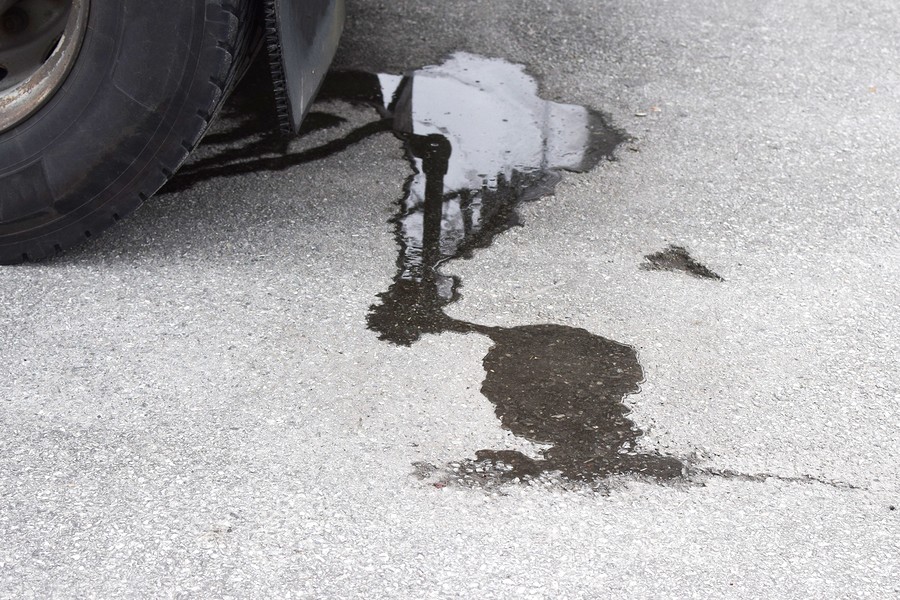If you're asking yourself, “how can I tell if my radiator is leaking?” Here are all potential symptoms:
- Reduction in the coolant level
- Puddles of fluid underneath the car
- Discoloration on the radiator
- Bad radiator hoses
- Engine overheating
- High-temperature gauge reading
Your vehicle contains a lot of fluids, and each fluid is responsible for doing a specific job. For example, one of the very critical fluids you must maintain is the radiator fluid, which is referred to as the coolant.
The radiator fluid might leak over time of use for various reasons. Whatever the reason is, you should resolve the issue as soon as possible to prevent dealing with major engine problems that could cost you thousands of dollars in no time.
If you've ever asked yourself, “how can I tell if my radiator is leaking?” You'll get the short answer from this article! Read on for more details!
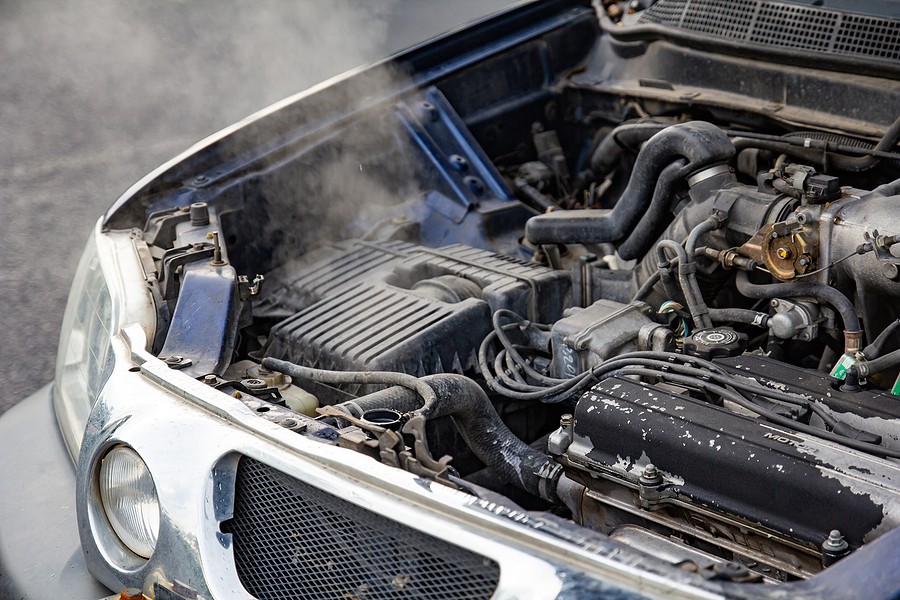
What is the radiator fluid, and what does it do?
It is important to highlight the main role of the radiator fluid in your vehicle before digging into the details about how you can tell if the radiator is leaking or not. Once you understand this role and once you understand the critical job of the What year of fluid in your vehicle, you will not hesitate for a second to fix the leak as soon as possible.
When your vehicle's engine generates heat, it becomes extremely hot because of the excess temperature. To help the engine perform within the optimum range, your vehicle relies on the cooling system, and the radiator fluid is almost the main component of this cooling system.
Typically, this coolant runs around the engine to drop its temperature down. Then, as the coolant gets hot, it goes back to the radiator, runs through it to drop its temperature, and returns to the engine to repeat the cycle.
Your vehicle must contain a specific amount of coolant. If the radiator fluid or the coolant is not at the right level, it won't drop the engine temperature. Therefore, you'll start dealing with engine overheating problems which is a huge deal for every vehicle because it is very pricey to fix.
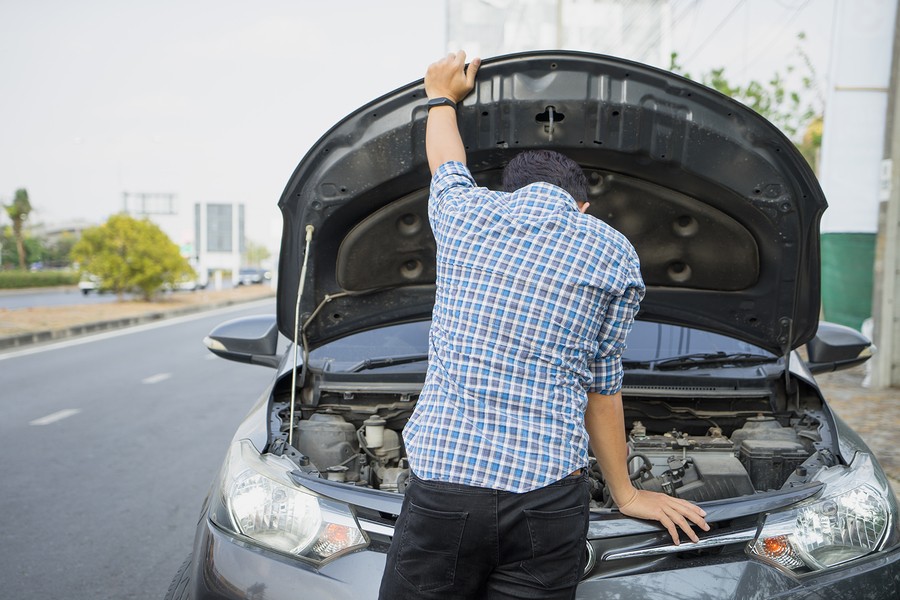
How can I tell if my radiator is leaking?
Considering the importance of the radiator fluid in your vehicle, one of the first things you should watch is any symptoms indicating that your vehicle's radiator is leaking. Let's take a closer look at some of the common symptoms that could indicate a coolant leak:
1. Reduction in the coolant level
The easiest and fastest way to tell you that your vehicle's radiator is leaking as we new look at the coolant level. Typically, the coolant reservoir should have a mark indicating the minimum and maximum thresholds. If you realize that the coolant level is below the minimum mark, it could indicate that you're dealing with a coolant leak.
Keep in mind that coolant might evaporate slightly, or it might drop a little bit but not much. However, if you notice that the drop in the coolant level is severe, this is a clear sign that you're dealing with a major coolant leak where you might even need to stop your car and never drive it unless your mechanic takes a look.
2. Puddles of fluid underneath the car
Sometimes when the coolant leak is severe, you might even notice that there are puddles and fluid underneath the vehicle towards the location of the engine. This is a very critical situation because it means that the coolant got to a point where you can't drive your car.
In other words, whether it's the coolant for any fluids, whenever you notice some dropping under the car, you must consult your mechanic because this fluid might be critical, which means you cannot drive your car. Whether your mechanic confirmed it's a coolant leak or an oil leak, this should prevent you from driving your vehicle. That's why you might want to consult your tooling service to tell the car to the nearest repair shop.
There are some instances where the coolant leak might not be measured, and that's why you'll notice a drop in the coolant level, but you won't see any drops on the floor. That's because whenever the coolant drips, it evaporates immediately as it touches the hot surfaces around the engine. However, you'll still be able to perform a visual inspection and realize that there are some dry drops of fluids along with the different engine components.
3. Discoloration on the radiator
Another thing to keep an eye on whenever you feel that you're dealing with a coolant leak is the color of the radiator. If you don't know the radiator and what it should look like, I can look up some names on Google and see how uniform the radiator color should be.
If you realize that the center doesn't look unique and uniform color, it could indicate that the whole lump leaks around the word theater and cause it to change its color at certain areas where the leak happened.
4. Bad radiator hoses
Sometimes even if you're not dealing with a coolant leak, it is important to perform a quick general visual inspection of the radiator and its hoses. If you notice one of the hose's week or rules, this might tell you that you'll deal with radiator fluid leak at some point if not already dealing with it.
Therefore, if you have the right mechanical skill sets, go ahead and tighten these hoses to prevent any coolant. However, if you're nervous about doing it yourself, like in all those, consult your mechanic who can do the job without a lot of charges. Keep in mind that if you decide to fix these holes yourself, you must not work on the engine compartment unless the engine is cooled down for at least 30 minutes, if not one whole hour, to prevent dealing with injuries and risks of burns.
5. Engine overheating
If the coolant leak was severe or if you ignored it for a long time, you can easily deal with engine overheating. As we indicated before, your engine expects a certain amount of coolant to run around it to bring its temperature down. When there are insufficient cool lines, the internal continue to overheat until it reaches very high points.
Engine overheating is extremely important, and it is a severe problem that you would never want to deal with. It will cost you a lot of money to fix because it impacts one of the very sensitive components in your vehicle, which is the engine. Engine repairs are not a joke, and they can easily cost you thousands of dollars, assuming that you can even repair them.
That's why many drivers give up on their vehicles because of simple problems started at a minor coolant leak that they ignored for a long time.
6. High-temperature gauge reading
This symptom is very close to the previously mentioned symptom about engine overheating. The temperature gauge on the vehicle's dashboard is responsible for communicating with you and telling you about the current Engines temperature. If the engine temperature approaches a maximum threshold, you'll see some warning lights or probably some high readings on the temperature gauge.
Whenever this gauge reads very high, you must take the issue seriously because it is an early slide of engine problems that you should be aware of. Also, keep in mind that this high gauge reading might be linked to various other issues like an oil leak or any other problems that might not necessarily be related to the cooling system.
Therefore, your mechanic needs to perform a thorough inspection to confirm whether it's a problem related to a radiator leak or not or probably a combination of several problems at the same time.

Can I drive my car with a radiator leak?
Never a good idea! As we mentioned before, many of the consequences of radiator leaks might be extremely severe. However, some others are not very problematic.
Therefore, to stay on the safe side and stay on the conservative auction, you should not continue driving your car if you confirm a coolant leak.
As we indicated before, the consequences of coolant leak problems are very expensive to fix. Therefore, whatever it's going to cost you to take care of this minor leak should not make you delay the issue and is not comparable to what you will pay when dealing with the more complicated issues.
Can a radiator start leaking?
It might. However, if you perform regular maintenance to your car, your mechanic will start noticing that you might deal with coolant problems soon. Therefore, the best way to prevent dealing with sudden radiator leaks is to continuously maintain your car and have the mechanic do regular checkups for your vehicle to detect early problems before they get complicated.
Typically, a sudden radiator leak might happen from a major external problem. Still, it might look certain to you even if the problem started minor, and then it got bigger and bigger over time.
For example, say that you have a minor leak at certain components around the radiator. This leak might not immediately show you the severe symptoms we indicated before. For example, you won't notice that the temperature gauge is reading very high, or you won't deal with engine overheating issues. However, because you did not perform the regular maintenance, your mechanic did not notice this issue, and that's why it got more complicated, and it got to a point where you thought that it was a sudden leak whereas it's been started since a long time.
Long story short, to prevent any sudden car plot problems related to the cooling system or not, you must maintain your vehicle and perform as recommended in your vehicle's owner’s manual regularly.
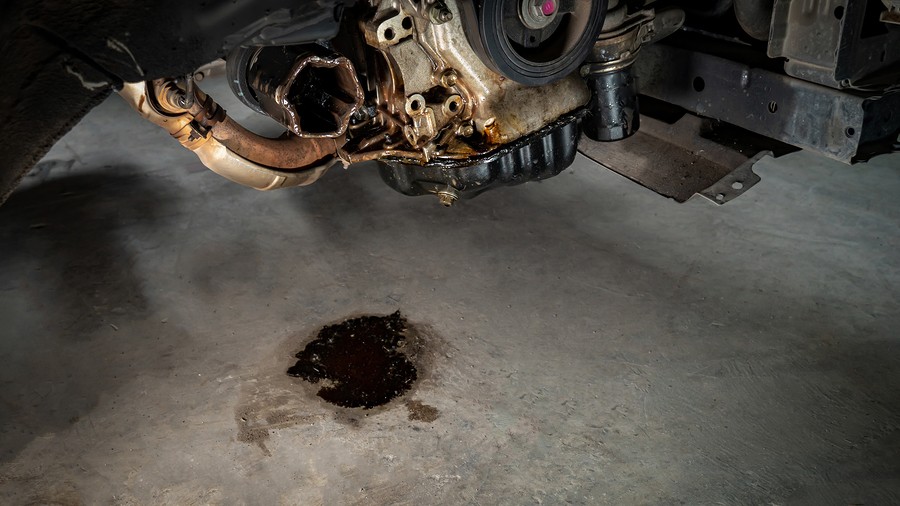
How much does it cost to fix the radiator leak?
It depends. Radiator leak repairs depend heavily on many factors, including the severity of the leak, where you get the job, your address, etc.
For example, if all that you're dealing with is a minor league, your mechanic can fix it in a very short time without needing excessive repair. However, if the leak is very severe, you will need to think about how much you'll pay for the mechanic and how much you'll pay for the towing service that will take your car from your location to the nearest garage. Towing services are not cheap, and even though it will cost you a little bit to fix the leak, the addition of towing service will be an important component.
If you would like a rough estimate for radiator leak repairs, expect to pay between $50 and $500. However, don't be surprised if your mechanic asks for $900 in some instances, especially if you decide to go to a dealership where labor cost is very expensive.
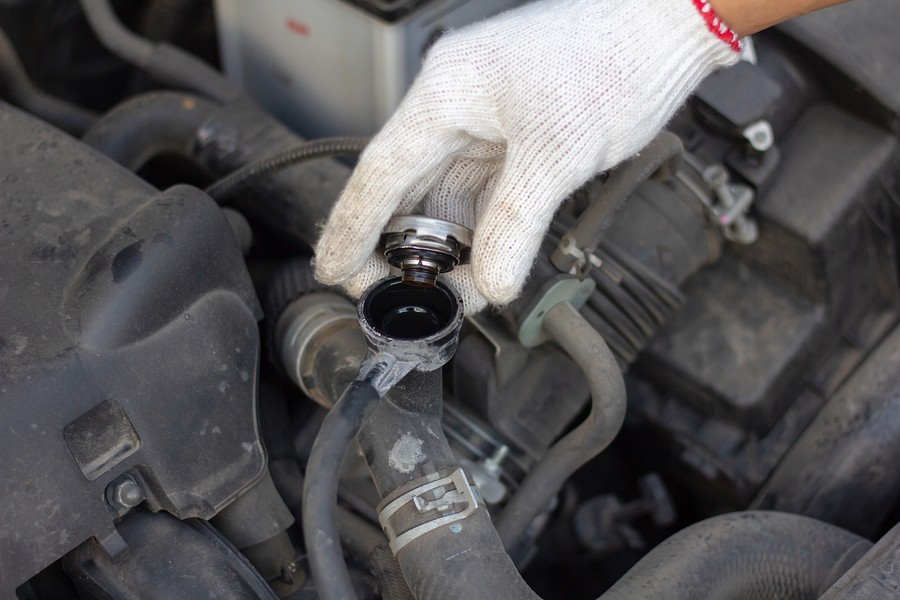
Final thoughts
A radiator leak is one of the very difficult situations you would never want to deal with. However, when it happens, it's not preventable. Therefore, every driver must familiarize himself with the different symptoms indicating that the radiator is leaking.
Therefore, if you've ever asked yourself how “can I tell if my earlier is leaking,” this article provided you with a clear answer. It highlighted very common symptoms of radiator leak, including engine overheating, puddles of fluid underneath the car, high-temperature gauge reading, etc. You must fix your car immediately to prevent expensive repairs whenever you notice any of these symptoms.
However, if your vehicle left a point where you're dealing with many different problems from different components, you'll need to evaluate the condition and calculate the total repair costs. If repair costs approach the value of your car, it doesn't make sense to spend your time, energy, and money trying to fix this car. The good news is that cash cars buyers are willing to purchase your car no matter its type or condition!
Cash Cars Buyer is one of the top-rated car removal companies in the nation that guarantees to pay you the top dollars and provide you with free towing despite your living location around the United States.
Our process is very straightforward and doesn't take more than a couple of days to get your car removed safely and for the most money.
All it takes you is to:
- Describe your car’s type and condition
- Receive our instant free quote
- Accept the quote
- Get your car removed and receive your cash payment on the spot!
To learn more about our process and our teen, you can reach out to us by calling us at (773) 791-4363 or visiting our home page click on the free instant online offer.

